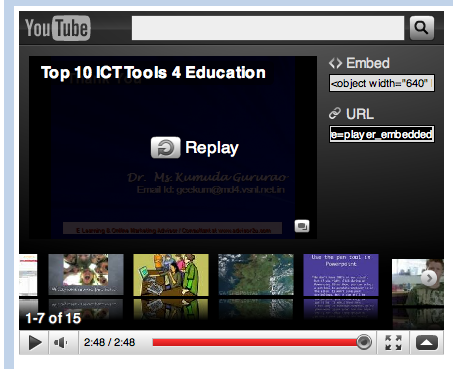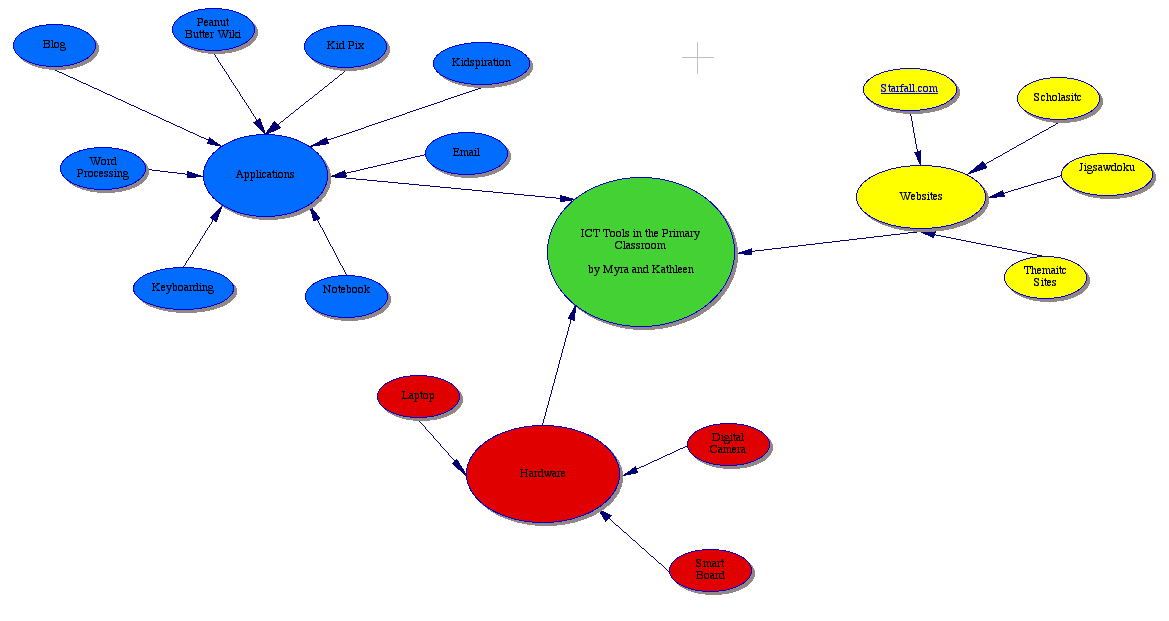Course:EDCP470 951 2010/ICT "Tools" ?
Important Considerations on ICT Tools
The concept of tools in ICT cannot be alienated from Marshall McLuhan's dictum that "We shape our tools and then they shape us."[1] According to McLuhan, tools are crafted to extend the physical and mental faculties of the human, allowing the species greater and greater command over their environment. Each new development expands the concept of the human to encompass new theoretical paradigms, ultimately redefining notions of what is humanity. For example, the massive mechanization in the 19th century, shifted the notion of the human from an organic creation to a biological machine.
Recently, scientific research on the brain has determined that its workings are not reducible to a mechanistic determinism as was assumed for almost a century. Rather, the brain is incredibly fluid and adaptive, capable of readily rewiring itself based upon repetitive patterns of usage. As tools isolate, discipline, and repeat exclusive modes of activity, it is now clear that they are fundamental in establishing the neural connections that ultimately shape consciousness and perception.[2]
As human civilization moves from an analogue interface with knowledge to a digital one, traditional mental frames are undergoing profound changes. For close to 3000 years literacy required intense development of the brain and the cultivation of skills of concentration, patience, and analysis. These skills were directly derived from the shape of the tool at hand - in-depth, extended textual writing/reading. The book is the definitive example of this tool.[3]
The internet's interface, however, does not readily lend itself to immersive reading. Hyperlinks effectively reshape the mental landscape by revealing, and making possible, instantaneous webbing of knowledge. Researchers are now learning that constant webpage-jumping over extremes of subject-matter - 'surfing the web' - promotes shorter attention spans. This attribute of 'surfing the web' is now becoming an engrained habit as web-users spend more and more time browsing the internet, using computer-based tools, and bedding their social life into digital media.
Naturally this poses questions to which answers have yet to be crafted - what are the long-term effects of ICT tools on the brain? And from that starting-point, upon notions of the human; relationships; intake of knowledge; generation of knowledge; and analysis.
--Jwblattler 15:49, 14 July 2010 (UTC)
Common ICT Tools in Schools
While the term ICT "Tools" has been hotly contested amongst educators, there are a few items that have undeniably entered into mainstream ICT vocabulary and subsequently should enter into the vocabularies of educators as well in order to aid the development of ICT within the classroom. This list is not exhaustive, nor specific, and is in constant flux as the technology is always evolving. Unlike standard "tools" that are found outside the digital realm, ICT tools are often interactive and engaging, offering its users the opportunity to be generative and creative and thus shifting the educational paradigm from the traditional receiving moe towards a more hands-on, self-directed type of learning.
Search Engines With such an abundance of information, search engines give users the ability to filter out unwanted sites while honing in on desired information.
Blogs Forms of mass media have historically been in the hands of select few. With blogs, everyone has an equal opportunity to voice their own opinions to the masses.
Video Sites Mass communication that incorporates an audio and visual component.
Social Networks Personalized communication technology. Unlike blogs, this form of communication can be sent to specific users. --EdisonWan 16:01, 14 July 2010 (UTC)
There are tons of ICT "Tools" online, and most of them are free and excellent. Here are some of them.
--LijuanRosemaryQi 16:29, 14 July 2010 (UTC)
The term “ICT tools” is broad and involves many technologies. These tools can be applied to instruction and integrated into classroom instruction.
Here are some suggestions for incorporating the use of ICT with Bloom's Taxonomy:
Creating - Painting programs (KidPix, Tuxpaint), blogging, iMovie, Garage Band
Evaluating - wordprocessing, mindmaps (Inspiration), wikis
Analyzing - survey (Survey Monkey), graphs and spreadsheet, chart, database
Applying - presentation tools, performance, digital editing
Understanding - journaling, creating timeline
Remembering - flashcard games, online quizzes and tests
Bloom's revised taxonomy and Digital Approaches
[4]
by Myra and Kathleen


